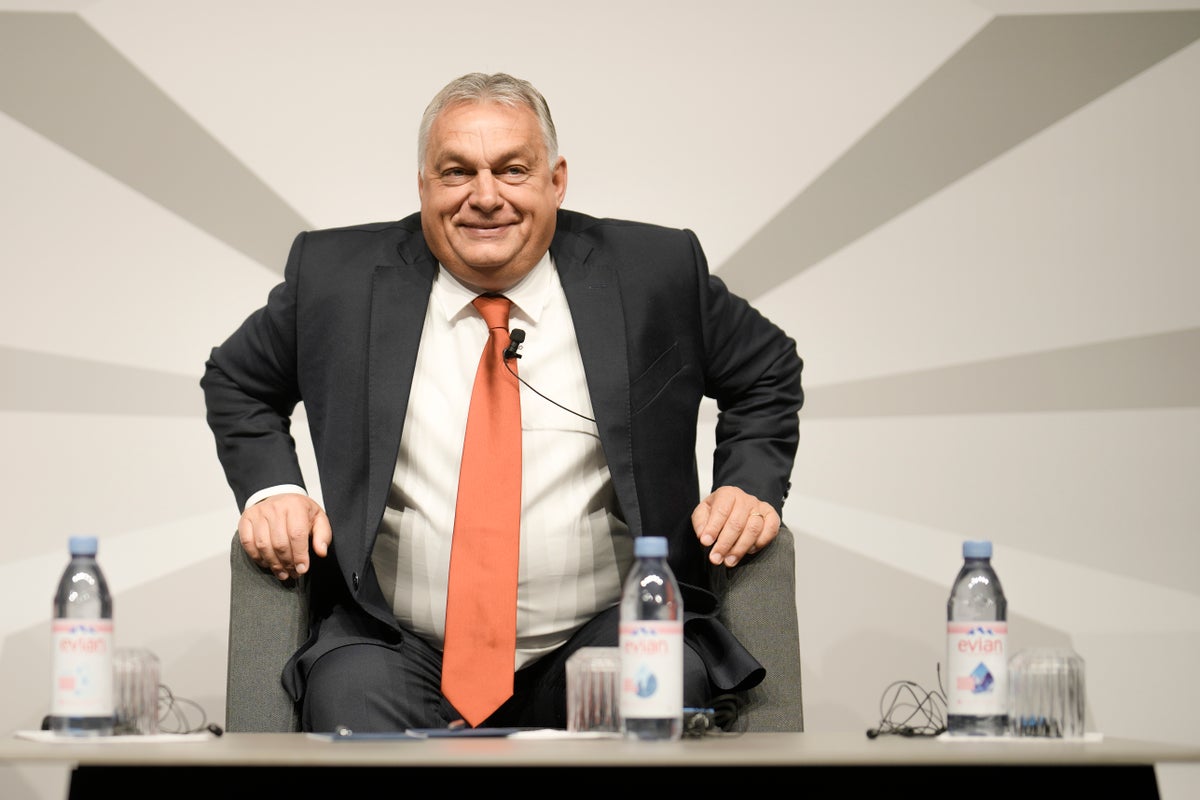
A summit of four Central European leaders in Slovakia on Thursday could be set to redefine a regional alliance that's under strain from diverging approaches to the war in Ukraine.
Fault lines within the bloc known as the Visegrad Four — Poland, the Czech Republic, Slovakia and Hungary — have appeared in recent months over Hungary’s lukewarm support for Ukraine amid Russia's invasion, which has alienated Budapest's populist government from some of its strongest regional allies.
The meeting of the four prime ministers in Kosice, Slovakia, will be the first in months after previous V4 gatherings were cancelled, including a meeting of parliamentary leaders that was scrapped last week after being boycotted by Czech delegates over Hungary's continuing close ties with Moscow.
That boycott led Hungary's populist prime minister, Viktor Orban, to express doubt that Thursday's summit would even take place. At a conference in Budapest last week, he said the “geopolitical divergence” within the V4 over the war in Ukraine had made its dynamics “change significantly.”
“The Czechs and the Slovaks have ... expressed uncertainties and opinions that have downgraded the importance of the V4 within their foreign policy," Orban said. “Cooperation with the Poles isn’t easy either, because although there’s still agreement between us on the basic goals of the V4, the Russo-Ukrainian war has transformed this relationship and made it more complicated.”
The four, all former Warsaw Pact members during the Cold War, have historically distrusted and feared Russia after spending decades under Soviet domination in the 20th century.
Yet as governments across the European Union, and perhaps especially those on the bloc's eastern flank, have sought to place sanctions on Moscow and deprive the Russian economy of vital revenue by cutting energy imports, Orban — considered Russian President Vladimir Putin's closest EU ally — vigorously lobbied against EU sanctions, forbade the transfer of weapons across Hungary's border with Ukraine and sought additional deals with Moscow on gas, oil and nuclear energy.
Furthermore, Orban last week said his government would veto an EU aid package to Ukraine worth 18 billion euros ($18.6 billion) meant to help keep its energy and health care facilities running as well as to fund salaries and pension schemes.
While summit host Slovakia, which holds the V4's rotating presidency, has indicated that foreign policy would be downplayed at the meeting in favor of discussions on migration, energy and sustainability, the war will loom large, and could drive a wedge even deeper between Orban and his counterparts.
Hungary is the only NATO member other than Turkey which has still not ratified the accession of Finland and Sweden into the military alliance, frustrating some allies who believe quickly accepting the countries is a security priority amid the war in Ukraine.
Speaking in Helsinki on Sunday, Poland's right-wing Prime Minister Mateusz Morawiecki said the V4 leaders would pressure Orban on Thursday to ratify the Nordic countries' accession.
“I am sure that together with our friends from Slovakia and the Czech Republic we will ask Viktor Orban for a swift ratification of documents for Sweden and Finland,” Morawiecki said. "This is critically important to increase security of the eastern flank of NATO and the security of our region.”
Other tensions are likely to rise to the surface in Kosice. Officials from most of Hungary’s neighbors reacted with anger after Orban posted a video to Facebook on Sunday where he wore a scarf that featured a map of “Greater Hungary” — the borders of the historical Hungarian kingdom that were abridged in 1920 after World War I.
The foreign ministries of Romania, Austria and Ukraine — areas of which once belonged to the Hungarian kingdom — accused Orban of irredentism, which is a desire to regain lost territory. Slovakia's foreign minister, Rastislav Kacer, called the scarf “disgusting.”
Czech Prime Minister Petr Fiala on Wednesday told Czech news agency CTK that V4 leaders would address the episode with Orban.
“What one can sometimes hear from Hungary, be it in the form of rhetoric or specific acts of individual representatives of the Hungarian government, certainly does not help the situation,” Fiala said. “I also noticed Orban’s scarf and I do not doubt that tomorrow, this will be mentioned at our meeting."
___
Monika Scislowska in Warsaw, Poland, Karel Janicek in Prague, Czech Republic and Jari Tanner in Tallinn, Estonia contributed to this report.







